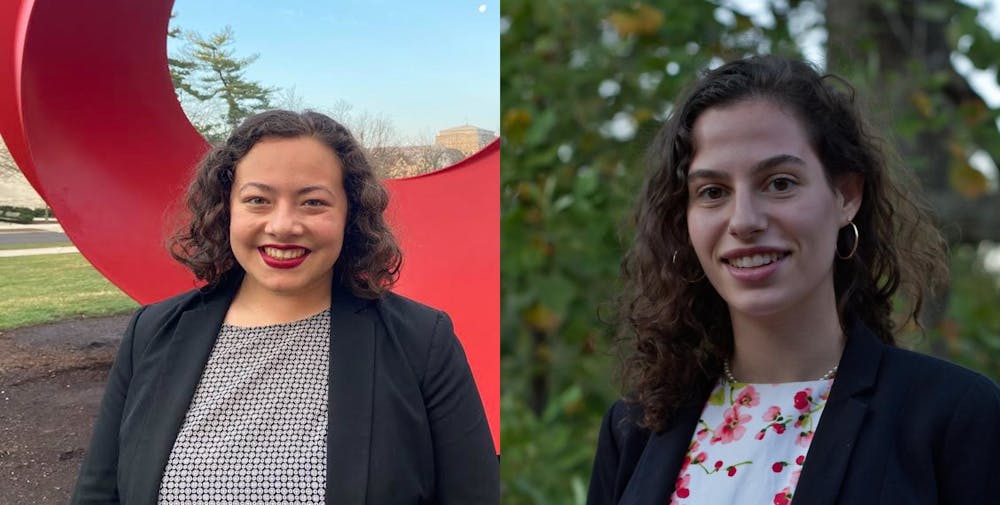Amid the COVID-19 pandemic, IUSG spring elections will continue online. Candidates will promote their platforms online and through social media until election dayApril 15.
Voting for the IUSG election will start at 10 a.m. April 15 and end at 10 p.m. April 16, according to IUSG’s website. A link will be sent to IU students' emails.
Senior and IUSG election commission chair Quinn Gordon said all the public events throughout this election process will now be online. The traditional town hall and debate where students can ask the candidates questions will still happen via Zoom, Gordon said. He said the Zoom link will be distributed on IUSG’s website and social media, and these conferences will be recorded and posted there as well.The first town hall is 7 p.m. April 8 and the first debate is 7 p.m. April 14.
Gordon said for the first time ever, candidates have access to $2,000 from university funds to spend on their campaigns. He said IUSG has been pushing to get this funding for the university for several years as a way to minimize the financial barrier for students who want to run campaigns.
The funding allows the election commission to purchase items like T-shirts and laptop stickers for the campaigns to distribute. Gordon said because of the COVID-19 crisis, the election commission is reimbursing campaigns for things like social media ads instead.
Sophomores Madeline Garcia and Arianna Hoye are running for student body president and vice president respectively on a campaign called Defy. Sophomores Rachel Aranyi and Ruhan Syed are running a campaign called Inspire for those respective positions.
Aranyi said she is running for IUSG student body president because she wants to make the organization a student activist platform and promote students' voices. The main platform of the Inspire campaign includes pushing for a tuition freeze so students would pay the same amount each year, a $15 minimum wage on campus and discouraging investment in fossil fuels, Aranyi said.
Other issues the Inspire campaign focuses on can be found on its website.
“We’re really working on bringing different views to the table and giving everybody the opportunity to share their communities’ issues and challenges, so we can work together to make a better community here at IU,” Aranyi said.
Syed, running for vice president on the Inspire campaign, said one of the reasons he wanted to be part of the ‘Inspire’ campaign was because of Aranyi’s desire to make education more accessible for students.
“I’m a child of immigrants, and the only reason I’m at IU is because education was made accessible to me,” Syed said. “I’d love to keep giving that back.”
Syed said the Inspire campaign's goal is to affect student life on a daily basis in a positive way.
Garcia said she is running for IUSG student body president as part of the Defy campaign because she is passionate about a lot of initiatives that haven’t been addressed, such as advocating for vulnerable students who are dealing with homelessness, food and security, employment issues and more that are left out of key IUSG policy decisions. Garcia said she wants to spark new conversations to address and confront discrimination, racism, ableism and more.
Another core issue of the Defy campaign is promoting sustainability on campus by discouraging investment in fossil fuels, investing in energy efficient sources and promoting sustainable dining choices.
“We are excited to bring students more transparency about university operations and help create a culture where students of all backgrounds are welcome,” Garcia said.
Hoye, running for vice president on the Defy campaign, said the campaign wants to go against the traditional structure of IUSG and focus on pleasing students rather than the IU administration.
Hoye said she wants to promote diversity training for faculty and greek life, support student workers through better training and increase the campus minimum wage from $10.15 to $15. She said she also wants to encourage student lobbying and government involvement on the state level so students are aware of state policies.
“Through diversity training, uplifting the workers and also creating more of a bridge between the student government and state government I, feel like we as a Defy campaign can progress a lot of issues,” Hoye said.
This year, the websites and social media accounts of the campaigns are especially important for students to follow due to lack of physical presence on campus, Gordon said.




